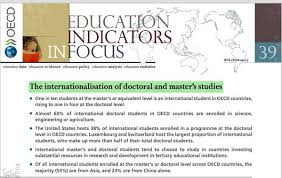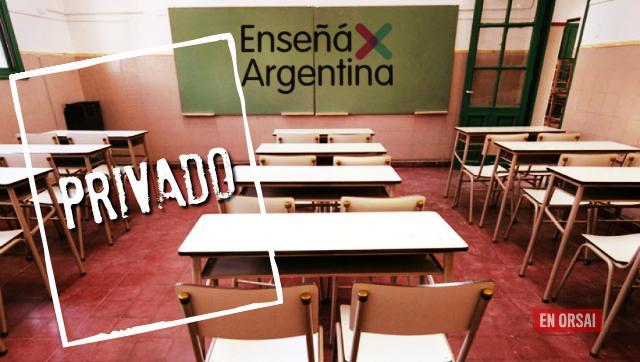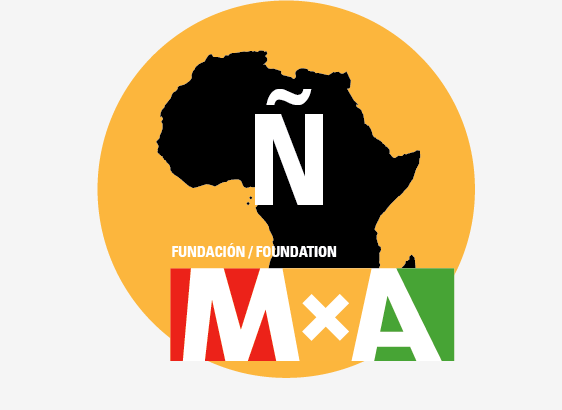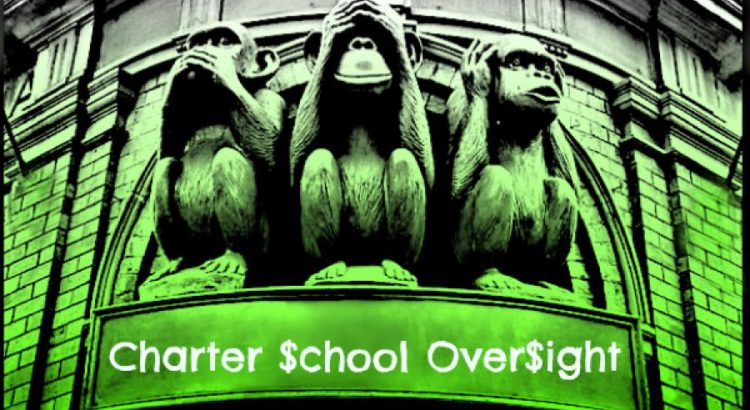Fuente: dreamdeferred.org.uk /2 de Mayo de 2016
By Martin Smith and Tash Shifrin
Introduction
Europe is witnessing a dangerous revival of fascist and racist populist parties and organisations. Over the next few weeks we are going to publish a series of articles analysing the scale of this threat.
We will focus on the countries where fascist and racist parties have made significant electoral and/or organisational breakthroughs. There are small fascist groups operating in several other countries, but with very small numbers and little impact. We intend to look separately at the situation in Russia at a later date and have not included it here.
Our series starts with a country by country guide – part one is below, with part two to follow shortly.
Next in the series will be an analysis piece, including working definitions of fascism and far right racist populism, and we will look at the conditions that are enabling these parties to flourish.
We hope this series will be of use to antifascists and antiracists across Europe.
We would like to encourage readers to send us comments, reports and analysis of fascist and racist parties that are active your country or region. You are welcome to post your thoughts in the comments section, or if you would rather get in touch with us offline, you can email us via our Contact page. We very much hope you will support this project.
Part one
Our survey begins with a table of election results. This shows the spread of both fascist and far right racist populist parties across Europe and the electoral strength they have. In countries such as Hungary and Poland, we see a combination of a large far right party with a fascist party as well.
But it is important to note that this gives an indication only of the electoral strength of fascism and the far right. In our country by country guide and our full analysis to follow, we will also be looking at the strength of the paramilitary groups and street movements that make up the other wing of the European fascist and far right scene.
The table is intended to give an at a glance view of election results. But the figures should be treated with a degree of caution. Results cannot be directly compared between countries because of variations in the electoral systems in use – this applies even to the elections for MEP seats in the European Parliament held in 2014.
The timing of national elections, with countries going to the polls in different years, also makes direct comparisons problematic. We have used the most recent parliamentary election results in each country – but this means that in some countries the scale of the problem can be hidden. In France, for example, our figures come from the legislative elections of 2012, which marked only the start of the fascist Front National’s sharp rise. Its real strength now is much greater.
You can read all our election coverage here.
Table of election results to national and European parliaments
You can click on a country name to go straight to our guide to fascism and the far right in that country or scroll down to read our full guide.
Fascist party
|
MPs
|
% vote
|
MEPs
|
% vote
|
Far right party
|
MPs
|
% vote
|
MEPs
|
% vote
|
| Austria |
|
|
|
|
|
FPO |
40 |
20.5 |
4 |
19.7 |
| Belgium |
| Vlaams Belang |
3 |
3.67 |
1 |
4.2 |
|
|
|
|
|
| Bulgaria |
| Ataka |
11 |
4.52 |
0 |
2.96 |
|
|
|
|
|
| Patriotic Front * |
19 |
7.3 |
0 |
3.05 |
|
|
|
|
|
| Czech Republic |
|
|
|
|
|
Dawn – National Coalition |
14 |
6.88 |
0 |
3.12 |
| Denmark |
|
|
|
|
|
Danish Peoples Party |
37 |
21.1 |
4 |
26.6 |
| Finland |
|
|
|
|
|
Finns |
38 |
17.7 |
2 |
12.9 |
| France |
| Front National |
2 |
13.6 |
24 |
24.86 |
|
|
|
|
|
| Ligue de Sud (FN splinter) |
1 |
|
|
|
|
|
|
|
|
| Germany |
| NPD |
0 |
1.5 |
1 |
1.03 |
AfD |
0 |
4.7 |
7 |
7.1 |
| Greece |
| Golden Dawn |
18 |
7 |
3 |
9.4 |
|
|
|
|
|
| Hungary |
| Jobbik |
23 |
20.3 |
3 |
14.7 |
Fidesz |
117 |
44.8 |
11 |
51.4 |
| Italy |
| Fratelli d’Italia – Alleanza Nazionale |
9 |
1.95 |
0 |
3.66 |
Lega Nord |
18 |
4.08 |
5 |
6.2 |
| Netherlands |
|
|
|
|
|
PVV |
15 |
10.1 |
4 |
13.3 |
| Norway |
|
|
|
|
|
Progress Party |
29 |
16.3 |
n/a |
n/a |
| Poland |
| Ruch Narodowy (RN) ** |
10 |
n/a |
0 |
1.39 |
PiS |
235 |
37.58 |
19 |
31.78 |
|
|
|
|
|
Kukiz’15 |
42 |
8.81 |
|
|
|
|
|
|
Korwin (formerly KNP) |
0 |
4.7 |
4 |
7.15 |
| Slovakia |
| Slovak National Party (SNS) |
15 |
8.6 |
|
|
|
|
|
|
|
| Kotleba –People’s Party Our Slovakia (ĽSNS) |
14 |
8 |
|
|
|
|
|
|
|
| Sweden |
| Sweden Democrats (SD) |
49 |
12.9 |
2 |
9.7 |
|
|
|
|
|
| Switzerland |
|
|
|
|
|
SVP |
65 |
29.4 |
n/a |
n/a |
| UK |
|
|
|
|
|
UKIP |
1 |
12.6 |
24 |
27.5 |
| Ukraine |
| Svoboda |
6 |
4.71 |
n/a |
n/a |
|
|
|
|
|
| Pravy Sektor (Right Sector) |
1 |
1.8 |
n/a |
n/a |
|
|
|
|
|
* The European result is for the National Front for the Salvation of Bulgaria, now part of the Patriotic Front.
** The RN’s candidates did not stand under their own banner, but sneaked in on the electoral lists of Kukiz’15. This means there is no official national figure for the RN’s voting strength. |
Country by country
AUSTRIA
The Austrian Freedom Party (Freiheitliche Partei Österreichs, FPÖ) is a far right racist populist party that is seeing increasing electoral success. Its candidate Norbert Hofer leads the race for the Austrian presidency after taking 36.7% in the first round of voting on 24 April.
The FPÖ was formed in 1956 as the successor of the Verband der Unabhängigen, a group of so-called “de-Nazified” fascists and liberal republicans. Its first two leaders, Anton Reinthaller and Friedrich Peter, were both former members of the Waffen SS. However in the 1960s and 1970s the FPÖ became a centre right party promoting free market policies. Its first political breakthrough came in 1983 when it entered into a coalition government with the Social Democratic Party (SPÖ). It remains a party with a mixed membership that includes some fascist elements.
The FPÖ’s turn to far right populism took place under the leadership of Jörg Haider, who became party leader in 1986. Under his leadership the party began to adopt racist policies attacking asylum seekers and migrants. Haider became notorious for speaking out in defence of the SS and praising Hitler’s “full employment” policies.
In 1999, the FPÖ won 26.9% of the vote in national elections, its best ever result, and entered into a coalition government with the centre right ÖVP. Following a series of poor election results the FPÖ split in 2005. Haider and the parliamentary section of the party left, forming the Alliance for the Future of Austria (BZÖ), but Haider was killed three years later in a car crash.
The leadership of FPÖ passed to Haider’s long-term disciple, Heinz-Christian Strache, in 2005. Under Strache the FPÖ has regained much of its electoral strength. It opposes European integration, it is rabidly opposed to Turkey entering the EU and attempts to portray itself as an anti-establishment party. Strache is also an anti-Semite: he was widely condemned in 2012 after he posted a caricature on his Facebook page of a banker with a hooked nose, wearing Star of David cufflinks.
The core electoral support for the FPÖ comes from its racist agenda. It spearheads campaigns against migrants and asylum seekers. The FPÖ has also targeted the country’s Muslim population, stirring up alarm against the so-called “Islamisation” of Austria. In the run up to the European elections in 2014, Andreas Moelzer, a leading FPO candidate, declared that the EU was in danger of becoming a “conglomerate of negroes”.
In the 2015 Euro Elections the FPÖ polled a fifth of all votes. In October last year, the FPÖ came second with 30.7% in the Vienna state elections and it now stands in first place at around 30% in national opinion polls.
BELGIUM
The Vlaams Belang (Flemish Interest, VB) is a fascist party, with a racist and Flemish nationalist platform. The party was formerly called Vlaams Blok and its supporters were Hitler worshippers with very close ties to Belgium’s wartime Nazi collaborators.
One of Vlaams Blok’s leading members was Philip Dewinter (now a leading member of Vlaams Belang), who is happy to cite leading Belgian Nazis and collaborators as close friends. In 1998 he visited a cemetery and laid flowers at the graves of 38 Flemish SS members who fought for the Nazis. According to historian Christophe Diercxsens, Dewinter was also the guest speaker for a gathering of the former SS collaborators of Sint-Maartensfonds in 2001. Dewinter opened his speech with the words, “My Honour is loyalty” – the official motto of the German SS-soldiers during WW2.
Vlaams Blok was forced to disband after Roeland Raes, the Vlaams Blok vice-president, gave an interview on Dutch TV in 2001 in which he questioned the number of Jews killed in the Holocaust and the authenticity of Anne Frank’s diary. Vlaams Blok was taken to court in 2004 and found guilty of racism and discrimination. It was forced to disband, with Vlaams Belang launched in its place.
Vlaams Belang has three MPs and one MEP. While they have publicly distanced themselves from the former Vlaams Blok, they continue to promote the same issues. The party has built its electoral base on campaigning for Flemish independence, is a fierce opponent of immigration and is Islamophobic to its core.
Vlaams Belang is affiliated to the Europe of Nations and Freedom political group in the European Parliament, alongside the French Front National.

Bulgaria: Ataka leader Volen Siderov
BULGARIA
Fascist parties hold one in eight of the seats in the Bulgarian parliament, following the general election of October 2014.
Two main fascist parties are vying for influence in the electoral field and on the streets. The Ataka (Attack) party’s vote fell from 7.3% in 2013 to 4.52% in 2014. But a newly created rival fascist coalition, the Patriotic Front (PF), gained another 7.3%, up on the performance of its two main constituent groups in the previous year’s polls when neither passed the 4% threshold to enter parliament.
The PF won 19 seats in parliament and Ataka another 11 – a total of 30 in the 240 seat assembly.
Bulgaria is the poorest country in the EU, battered by heavy IMF-imposed austerity measures since the late 1990s, and racked with continuing political crisis – general elections are held frequently as governments fall in turn.
But as in many countries of the former Eastern Bloc, the legacy of Stalinism means it is hard for the genuine left to build. Instead, Ataka and the Bulgarian National Movement (VMRO) – now a key constituent part of the PF – played a substantial role in anti-government protests.
Bulgaria’s fascists particularly target Roma people, who make up around 10% of the population and already suffer severe discrimination in housing, health, education and employment.
In 2011, anti-Roma pogroms broke out in towns and villages across Bulgaria, after a young ethnic Bulgarian was killed by a minibus driven by a Roma man. Huge armed gangs stormed into Roma areas destroying homes and attacking residents indiscriminately. The wave of violence – the worst since World War II – was orchestrated by the fascists.
The fascists also target Bulgaria’s Turkish and Muslim population, while the VMRO is an irredentist party that seeks a “Greater Bulgaria”, chomping up Macedonia and parts of Serbia, Romania and Greece. Bulgaria’s fascists have close ties with Hungarian nazis Jobbik.
CZECH REPUBLIC
Dawn – National Coalition (Úsvit – Národní Koalice) is a far right populist anti-immigration party that uses anti-Roma and anti-immigrant racism. It took 6.88%, winning 14 seats (out of a total of 200) in the 2013 general elections, although its vote halved at the European elections, when it failed to take a seat.
But although it has no fascist heritage, Dawn is moving in a dangerous direction.
The party was founded by Japanese-Czech businessman Tomio Okamura as the Dawn of Direct Democracy, with a platform based on “direct democracy” as an anti-corruption measure. Despite his mixed Czech-Japanese heritage, Okamura is a racist who has proposed that Roma people be expelled to India.
Immediately after the 2013 elections, the MPs rebelled and booted out Okamura, who founded a new party, Freedom and Direct Democracy (Svoboda a přímá demokracie, SPD). This has organised its own demonstrations against refugees.
The Dawn MPs were not opposed to Okamura’s racism, but their election raised their sights: instead of banging on the direct democracy drum, they seek to build a larger party, modelled on the French Front National.
The Czech outfit is clearly studying the approach of other fascist and far right parties: at the 2014 European elections they produced an anti-immigration poster based on the sheep motif used by the populist Swiss People’s Party and by the nazis of Germany’s NPD and the Czech Republic’s now-defunct National Party (Národní strana) which was shut down by the Czech supreme court in 2011.

The racist sheep poster, used by the German NPD, the Swiss People’s Party, and by both the defunct National Party and Dawn in the Czech Republic. Graphic credit: Romea.cz
And like racist and fascist electoral parties in other parts of Europe, it is building links with a street movement, and with nazi and racist skinhead and football hooligan groups.
In February this year, Dawn joined forces with the Block Against Islam (Bloku proti Islámu, BPI) racist street movement to stage a racist demonstration “against the Islamisation of Europe” in Prague, with numbers put at around 3,000 by observers.
Representatives of the German Pegida movement and Czech nazi groups were also present. The demo ended in a violent attack by masked nazi thugs on a leftwing social centre providing language courses in Czech, Romani and English.
DENMARK
The far right racist populist Danish People’s Party (Dansk Folkeparti, DK) topped the poll in the European elections in 2014, winning 26.6% of the vote. It came second in parliamentary elections the following year, with 37 out of 179 seats.
The DK is a nationalist party that has built its electoral base through racism, especially targeting immigrants and Muslims. It was founded in 1995 as a split from the similarly anti-immigrant Progress Party. Its founder Pia Kjærsgaard has described a multiethnic Denmark as a “national disaster”.
The DK, now under new party leader Kristian Thulesen Dahl, has sharply increased its vote in the past two elections
The party has declared an aim of ending all immigration from non-Western or Muslim majority countries. Its strong position in parliament means it has been able to exert influence over Denmark’s centre-right minority government, resulting in measures such as the notorious new law allowing authorities to seize money and valuables from refugees.
FINLAND
The Finns party (Perussuomalaiset, PS), formerly known as the True Finns, is a far right racist populist party with a nasty leaning towards ethno-nationalism. It was founded in 1995 following the demise of its predecessor, the Finnish Rural Party.
Last year it won 17.65% of the vote in Finland’s general election. Although this was a slight drop from its 2011 vote of 19.1%, the Finns took second place, with 38 MPs out of a total of 200, and joined Finland’s coalition government.
The Finns party promotes anti-immigrant racism and decries multiculturalism. It also opposes the teaching of Swedish (an official language in Finland, alongside Finnish) in schools. Instead, it wants children to be taught “healthy national pride” and supports cultural activities that “promote Finnish identity”.
Among those elected as MPs for the Finns were four who were also leading members ofSuomen Sisu, a fascist organisation that has been described as “Nazi-spirited” in Finland’s press.
In 2013, one of these, James Hirvisaari, was expelled from the Finns after photographing a friend performing a Nazi salute outside parliament. Another, Jussi Halla-aho, has been convicted for inciting racial hatred. Suomen Sisu’s leader Olli Immonen, also a Finns MP, posted photos on Facebook showing him with members of the openly nazi Finnish Resistance Movement.
A 2011 opinion poll for the Helsingin Sanomat newspaper found that a majority of the Finns party’s supporters agreed with the statement: “People of certain races are unsuited for life in a modern society.”

France: Fascist Front national leader Marine Le Pen. Pic credit: Blandine Le Cain
FRANCE
The Front National (National Front, FN) is Europe’s most electorally successful fascist party. It took a record 6.8 million votes (27.1%) in the second round of elections to France’s regional government’s in December last year. It topped the poll in the first round as France’s most popular political party.
The parliamentary election results shown in our table mark only the start of the FN’s dramatic rise under leader Marine Le Pen, daughter of its founder Jean-Marie Le Pen.
In those elections, back in 2012, the FN took 13.6% of the vote, gaining its first two MPs since the 1980s, with a third MP’s seat won by splinter group Ligue du Sud. By the 2014 European Parliament elections, the FN’s vote had already rocked to 24.86%.
The party also controls 14 local mairies (town halls), which it is using as test beds for the future. In Béziers, in the south of France, for example, mayor Robert Méynard is setting up a uniformed militia of former soldiers and police to patrol the streets. He has also ruled against any new kebab shops and instituted a curfew on young people.
The FN has maintained a continuing base in its heartland areas since the 1980s, but has now expanded its reach massively.
Le Pen is set to make a serious challenge for the French presidency in 2017 – and the threat is very real. The FN mobilises its vote through racist, Islamophobic, anti-Roma and anti-immigrant rhetoric.
The FN’s meteoric rise follows Le Pen’s careful strategy of “de-demonisation” – a clean-up aimed at hiding the party’s fascist roots and politics under a bright, shiny “respectable” veneer, which has largely succeeded. Le Pen junior has finally expelled her more outspoken father, whose repeated Holocaust denial and crude quips were not welcome in public. But Marine Le Pen has never actually denounced her father’s politics – only their expression. She has also shifted the party from open expressions of anti-Semitism to the more publicly “acceptable” Islamophobia.
The clean-up strategy was in fact pioneered by Jean-Marie Le Pen whose “Eurofascist” project aimed to present potentially electable fascists in suits, keeping the bootboys and the swastikas out of sight. Marine has further refined the approach to create a glitzy, modern-looking party.
French fascism has long provided a theoretical and tactical framework that has inspired and influenced fascists across Europe. Today, every FN advance gives a boost to fascist and far right parties everywhere.
The FN has deep fascist roots. It was founded in 1972 by Le Pen, himself a veteran of theOrganisation de l’armée secrète (OAS) a brutal paramilitary far right organisation opposed to Algerian independence from France. It brought together existing fascist organisations such as Ordre Nouveau (New Order) – pictured at a conference with its White Power celtic cross symbols – Occident and the Groupe Union Défense (GUD).

FN predecessor organisation, Ordre Nouveau, in conference. Pic credit: Jacques Cuinières / Roger-Viollet
Its founding political bureau included ON leader Alain Robert, Waffen SS veteran Pierre Bousquet, and François Brigneau, a former member of the Milice – the militia formed by the Vichy regime that collaborated with the Nazis in WW2.
Today, the FN largely hides the continuing links between its slick electoral operation and the small hardcore nazi street-fighting groups.
But its connections and overlap with the openly ethno-racist Identitaires activist movement are becoming more explicit as Génération Identitaires cadres move into the FN controlled town halls and seek FN party membership.

Germany: Pegida demonstration. Pic credit: Strassenstriche.com
GERMANY
In a shock result at the 2014 European elections, Germany elected an MEP from hardcore nazi party the National Democratic Party of Germany (Nationaldemokratische Partei Deutschlands, NPD).

NPD’s Udo Voigt with Rudolf Hess banner. Pic credit: Marek Peters marek-peters.com
The NPD – whose leader is happy to pose in front of images of Hitler’s deputy Rudolf Hess – took just 1% of the vote, gaining the seat because Germany does not have a minimum threshold for winning European seats.
But the main electoral force on the far right is the Alternative for Germany(Alternative für Deutschland, AfD) – which won seven MEPs in 2014 and now has a presence in half of Germany’s 16 powerful state governments, although it has yet to win any seats in the federal parliament. It is the second largest party in the eastern state of Saxony-Anhalt.
The AfD – like Germany’s other racist and fascist groups – has sought to feed on the “refugee crisis”, ramping up its scapegoating efforts.
This racist populist far right party has been moving in the direction of fascism. It has been caught up in a factional battle, which has been won by the most rightwing and extreme racist elements.
Under new leader Frauke Petry the AfD is focusing ever more explicitly on anti-immigrant and anti-Muslim racism, and making overtures to the Pegida anti-Muslim street movement, described as “natural allies” by AfD deputy leader Alexander Gauland. Petry has declared that police should be able to shoot people crossing the German border “if necessary”.
Founder and former leader Bernd Lucke and his allies quit the party, claiming it had been infiltrated by racist, nationalist, anti-Semitic, Islamophobic and homophobic extremists.
In February the AfD announced an alliance with Austria’s Freedom Party (FPÖ) – a move that prompted the European Conservatives and Reformists group to seek to expel the two MEPs who remain part of the AfD following its split.
Meanwhile, Pegida (Patriotic Europeans Against the Islamisation of the West) is a real threat on the streets. Pegida is a foul racist soup, in which NPD and other nazis mingle with fascist football hooligan gangs and softer racists. It is able to mobilise thousands on the streets, especially in the former East Germany, hitting a high of 25,000 in Dresden in January 2015. Pegida attracts large numbers of ordinary people to its demonstrations – it is bigger, with a far wider reach, than the English Defence League in Britain ever was. After a dip in numbers last year, Pegida has shown signs of reviving, targeting the increasing numbers of refugees and migrants.
The combined advance of far right parties both in the electoral arena and on the streets, with organised fascists tying to pull both wings further to the right, is very alarming. The successes of Pegida, for example, has given hardcore nazis greater confidence to organise on their own – with around 3,000 demonstrating in Berlin in March.
GREECE
Golden Dawn (Chrysí Avgí) is a nazi party. It has both an electoral and a paramilitary wing. It wants to see Greece run as a dictatorship, uses Nazi imagery and is openly ethno-nationalist and racist. Golden Dawn was founded in 1983 as an anti-Semitic, pro-dictatorship organisation.
It only emerged as a dangerous political force as a result of the 2008 economic crisis, which has left 4.7 million people unemployed. Golden Dawn has tried to portray itself as a friend of “ordinary” Greeks by distributing food to poor communities (as long as they are ethnic Greeks). At the same time it blames migrants for Greece’s economic problems. Golden Dawn’s Youth Front has distributed fliers in Athens schools and organised a Rock Against Communism concert series .
The party has a track record of violence and terror. A Golden Dawn member stabbed to death leftwing antifascist rapper Pavlos Fyssas in September 2013.
Support for Golden Dawn is becoming entrenched in sections of the Greek police force, giving the party’s thugs a level of protection and immunity. A report published by Amnesty International noted:
Our investigation shows that the Golden Dawn debacle is only the tip of the iceberg. Entrenched racism, excessive use of force and deep-rooted impunity are a blight on the Greek police. Successive Greek governments have so far failed to acknowledge, let alone tackle, these human rights violations by police and on-going impunity.
A huge popular backlash against the Pavlos Fyssas murder forced the Greek government to act. In September 2013, party leaders and MPs were arrested and jailed en masse in the wake of the murder of Pavlos Fyssas, and prosecutors charged the party with being a criminal organisation. Ten police officers were found to have direct or indirect links with criminal activities attributed to Golden Dawn members.
But despite the legal onslaught, electoral support for the nazi party did not fall. In the 2014 Euro-elections over half a million Greeks voted for GD, giving it three seats in the European parliament and in 2015 it won 7% of the vote in the parliamentary elections gaining 18 seats.
Part two of our series is coming soon…




















 Users Today : 5
Users Today : 5 Total Users : 35460696
Total Users : 35460696 Views Today : 9
Views Today : 9 Total views : 3419833
Total views : 3419833